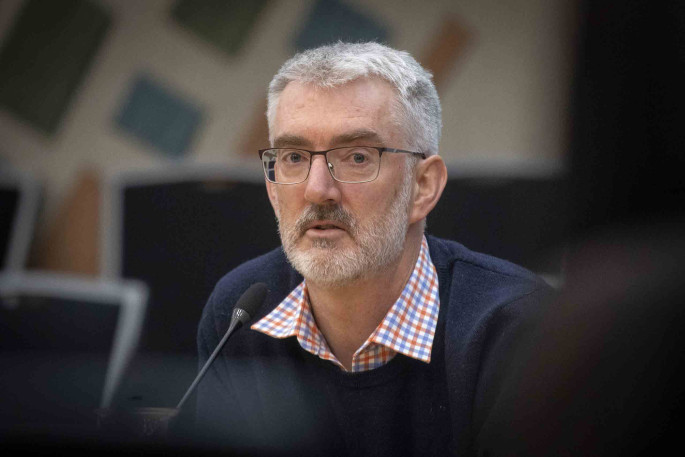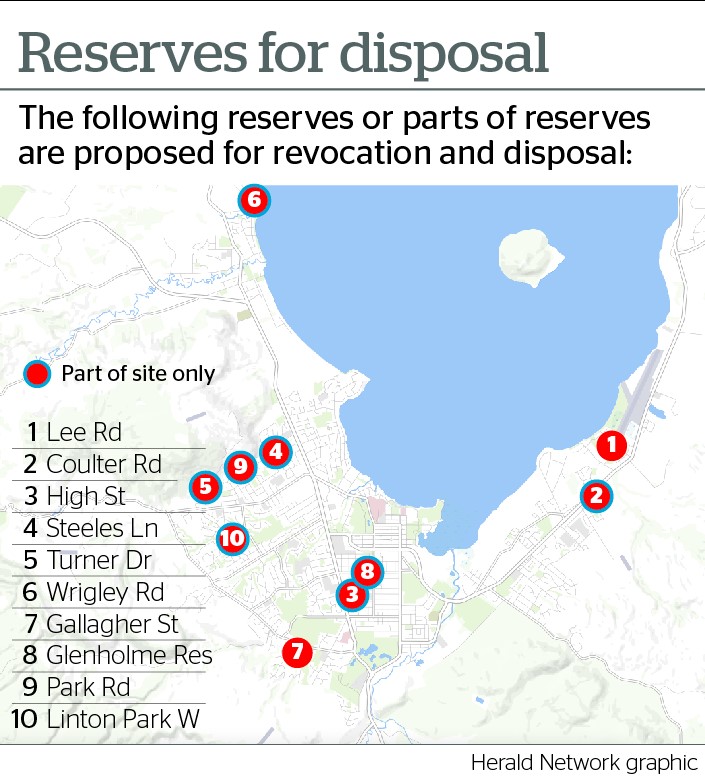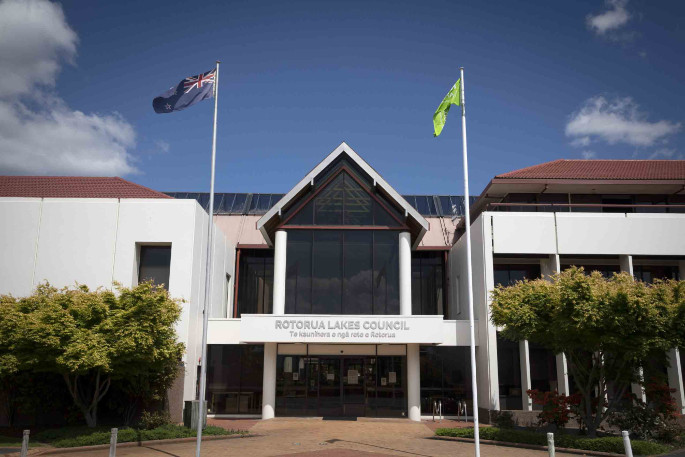A proposal to sell off 10 reserve sites for housing in Rotorua is one step closer to reality, with a council committee to consider recommending it for public consultation this week.
The housing would be a mix of public housing, affordable housing and private development from market sales.
If the proposal proceeds, it is likely the council will enable the sale of the reserves with a local bill through Parliament.
It follows Local Democracy Reporting's revelation of the plan, which was discussed in a closed-door council workshop in February.
In a council statement ahead of Thursday's Strategy, Policy and Finance committee meeting, it said elected members would this week consider whether to consult on a proposal to dispose of 'excess reserve sites” in the city to make them available for housing.
Elected members would consider a proposal for community consultation and feedback before any decisions were made about the reserves' futures.
Ten sites were identified – two full reserves and parts of eight further reserves. The statement said those sites did 'not meet open space policy objectives” and could be used for housing, including Kāinga Ora developments.
"It is proposed that proceeds of any sales be reinvested in the city's reserves network.”
The statement said the sites proposed for disposal had an area of about 9.5 hectares - 'about 0.6 per cent of [the] council's overall reserves network”.
It said that network had more than 370 individual reserves, totalling about 1500 ha.
The two full reserves identified were the Gallagher St Reserve and the Lee Rd Reserve.
It said the Gallagher St Reserve was 'not used for recreation but for grazing animals” and the Lee Rd Reserve had 'no facilities and is close to other large reserves”.
'Eight other sites identified for consideration are parts of reserves that fall short of safety design standards and or have no clear purpose or function and or are areas where safety is a concern.”
Elected members would consider recommending the council approve community consultation to help it decide 'whether or not to dispose of any reserve or part of any reserve; The legal method for disposal; The reserves to be developed or improved with funds from any proceeds of sale [and] any conditions to be applied to housing development by purchasers”.
The statement said the committee would also consider recommending to the council a local bill was "identified as the preferred legal method for revocation and disposal and that [the] council notes proceeds of sales will be use to improve existing reserves or to purchase new reserves”.
It would also consider recommending the council consult on a statement of proposal which included in-principle support for direct sale of six sites to Kāinga Ora, and that sites not sold directly to Kāinga Ora were sold by market sale or directly to a community housing provider 'where appropriate”.
It would also be conditional on the purchaser committing to delivering housing within two years.
The statement also revealed the council had discussed the idea with elected members in October as they had provided in-principle support 'for staff to begin due diligence processes for the potential revocation and disposal of identified reserves”.
'The report notes there is significant over-supply of reserve land in some areas (due to historic use of these as sports fields before Rotorua moved to a more centralised sports field model), compared with limited or no provision in other areas.”
The statement revealed 'early consultation” had already begun on the idea with mana whenua and local community groups.
"The Wrigley Road Reserve was included in the proposal following discussion with the Fordlands Community Association which is working to achieve housing and wellbeing outcomes in its community.
'It is proposed council staff continue working with the association to identify a suitable community housing provider to develop housing there.
'A kōhanga reo and a kindergarten leasing adjacent parts of the High St and Coulter Rd reserves respectively have both expressed support for making these sites available for housing.”
The statement said community feedback would inform council decisions about whether to proceed with the proposal and how, and there would be a further public consultation process under either the Reserves Act or as part of the pursuit of a local bill.
That bill would be separate from the local bill the council has paused regarding Māori wards and which has cost ratepayers about $74,000.
Kāinga Ora had 'expressed an initial interest” in purchasing six sites, it said.
"It is recommended some sites be sold directly to Kāinga Ora, conditional on certain stipulations being met, to help address a critical shortage of public housing in Rotorua.
 Rotorua Lakes Council district development deputy chief executive Jean-Paul Gaston. Photo:Andrew Warner / Rotorua Daily Post.
Rotorua Lakes Council district development deputy chief executive Jean-Paul Gaston. Photo:Andrew Warner / Rotorua Daily Post.
'The average percentage of public housing across New Zealand is four per cent, compared with two per cent in Rotorua.
'However, [the] council could decide to put all sites on the open market for sale.'
Reserve status for the identified reserve sites must be revoked before they could be sold, the statement said.
The standard process under the Reserves Act typically takes two years or more.
'It is recommended that a local bill process, which will be faster, be used if the proposal proceeds.”
The full council will need to approve the committee's recommendations in order for the next step to be taken. The next council meeting will be on May 26.
In April, Local Democracy Reporting revealed a proposal to dispose of some or all of 10 reserves for housing, via documents obtained from a closed-door council workshop.
That document named Ranginui St Reserve as one of the identified sites, but it was not included in the council's public proposal. Wrigley St Reserve was not included in the document from the closed-door council workshop.
A summary of the discussion in the workshop in that document stated: "Made it clear it was pace versus local conversations. Can't have both. If [the] council wants to drive a lot of local conversations it will take time to investigate to get people on board and need to weight (sic) up whether that is worthwhile".
At the time, council district development deputy chief executive Jean-Paul Gaston said options and information discussed in forums often changed before the final proposals.
He said forums were part of the council's due diligence before finalising and presenting proposals for decision-making or consultation.
"We can assure residents they would be informed and have the opportunity to make submissions on any proposal for consideration or decision-making.”

A graphic showing the reserves' locations. Graphic: NZME
The following reserves or parts of reserves are proposed for revocation and disposal:
· Lee Road Reserve
· Coulter Road Reserve (part only)
· High Street Reserve (part only)
· Glenholme Reserve – 117 Clinkard Avenue (part only)
· Gallagher Street Reserve
· Linton Park West – 16 Kamahi Road (part only)
· Wrigley Road Reserve (part only)
· Turner Drive Reserve (part only)
· Park Road Reserve (part only)
· Steeles Lane Reserve (part only)
Source: Rotorua Lakes Council
-Local Democracy Reporting is Public Interest Journalism funded through NZ On Air




1 comment
Secret meetings
Posted on 12-05-2022 15:17 | By Kancho
First we were told they had secret meetings on this issue. Now they have made their minds up they call it consultation. Consultation I learned may years ago doesn't mean agreement but only that information was given. Therefore having thus given discussion and information they can proceed to do as already decided. Smoke and mirrors, wool pulled over the eyes etc
Leave a Comment
You must be logged in to make a comment.